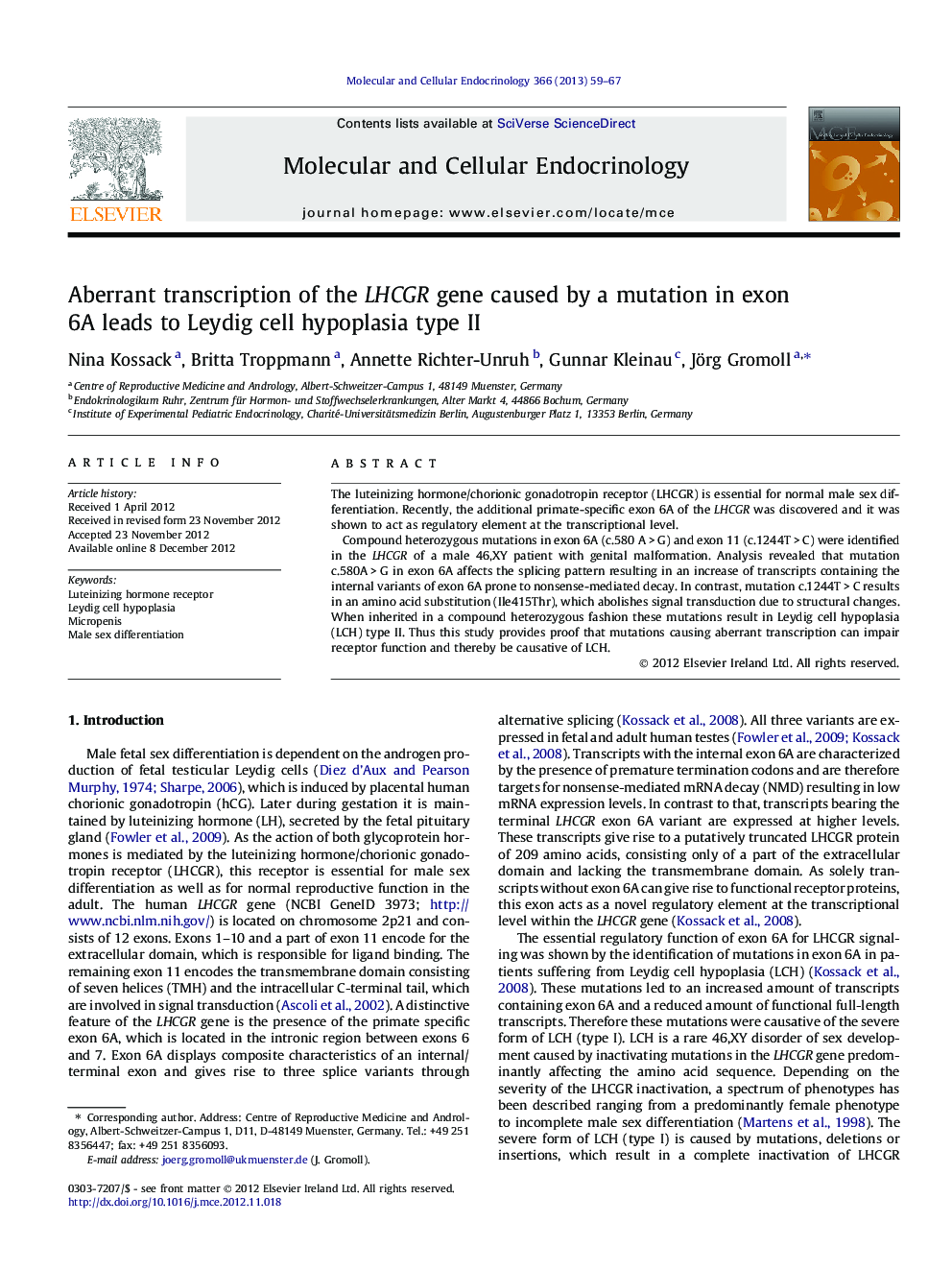| Article ID | Journal | Published Year | Pages | File Type |
|---|---|---|---|---|
| 2196242 | Molecular and Cellular Endocrinology | 2013 | 9 Pages |
The luteinizing hormone/chorionic gonadotropin receptor (LHCGR) is essential for normal male sex differentiation. Recently, the additional primate-specific exon 6A of the LHCGR was discovered and it was shown to act as regulatory element at the transcriptional level.Compound heterozygous mutations in exon 6A (c.580 A > G) and exon 11 (c.1244T > C) were identified in the LHCGR of a male 46,XY patient with genital malformation. Analysis revealed that mutation c.580A > G in exon 6A affects the splicing pattern resulting in an increase of transcripts containing the internal variants of exon 6A prone to nonsense-mediated decay. In contrast, mutation c.1244T > C results in an amino acid substitution (Ile415Thr), which abolishes signal transduction due to structural changes. When inherited in a compound heterozygous fashion these mutations result in Leydig cell hypoplasia (LCH) type II. Thus this study provides proof that mutations causing aberrant transcription can impair receptor function and thereby be causative of LCH.
► Exon 6A of the LHCGR is functionally important for normal transcriptional regulation. ► First three-dimensional structural model of the LHCGR terminal exon 6A variant. ► Characterization of two novel LHCGR mutations impairing receptor function.
